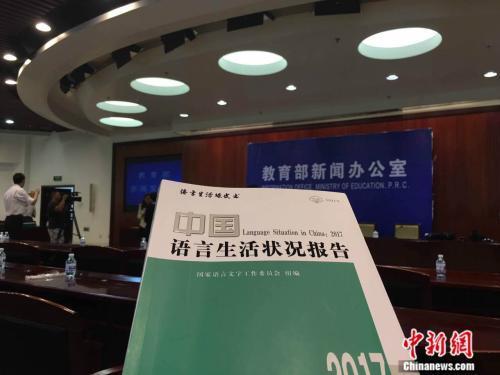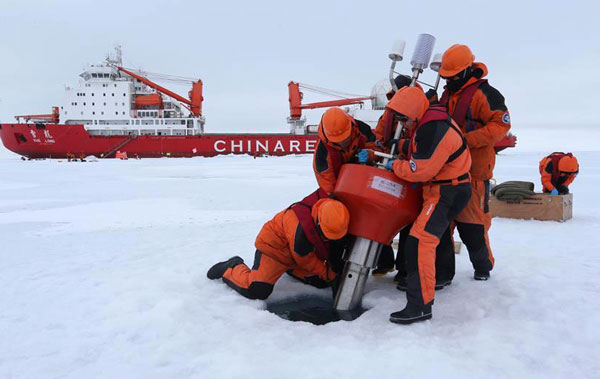GARETH PARKER:
Prime Minister, good morning.
PRIME MINISTER:
Good morning Gareth, great to be with you.
GARETH PARKER:
And thanks for coming on the show. How will it work?
PRIME MINISTER:
This will bring together our outstanding agencies so that they can do an even better job.
We’ve got the best security and intelligence services in the world, but as the threat of terrorism evolves and becomes more complex and more connected around the world courtesy of the internet and other technologies, we have to be responsive and stay ahead of the threat. So it’s vital that our agencies work more closely together.
So it is logical that those key domestic security agencies that you’ve just mentioned are in the one department. As indeed they are in most other comparable countries including the United Kingdom where they have been obviously in the Home Office under the leadership of the Home Secretary for many, many years.
This is a long overdue change. It is not responding to a failure or a crisis. Every step I take, every day is focused on keeping Australians safe and I’m always looking to find ways in which we can improve and optimize how our various agencies, including the Australian Defence Force, work together with other agencies to keep us safe.
GARETH PARKER:
There are some commentators Prime Minister, and I don’t just mean political commentators, I mean strategic affairs and defence commentators, who have suggested that the benefits of the current arrangements are that agencies like the AFP or ASIO or the other security agencies, that there is actually a benefit in having them separate because they don’t fall into the trap of ‘group think’. They report to different ministers so you get attention and a competition of ideas and of different perspectives when it comes to the best way to address these security challenges. Is there a risk that you remove that competitive tension, a risk that you actually result in ‘group think’ by bringing everyone under the same minister?
PRIME MINISTER:
No absolutely not. Look, the agencies cooperate closely now and you’ll find that when things go wrong, Gareth, in terms of security matters, it’s invariably because there has not been enough cooperation, enough connectedness, people have been operating in silos and so forth.
So my goal and my commitment is always to stay ahead of the threat.
It is very easy for governments and public servants for that matter to just leave things as they are. I come from a very proactive business background where you are constantly seeking to improve what you’re doing.
I do not believe in ‘set and forget’. I don’t believe in being complacent. No matter how well you’re going, you’ve always got to ask yourself how can we go better? How can we do it more efficiently? How can we give Australians more protection? That’s what we’re doing here.
GARETH PARKER:
So why is Peter Dutton the best man for the job?
PRIME MINISTER:
Well he’s doing an outstanding job as the Minister for Immigration and Border Protection and that of course is a key part of the new Ministry for Home Affairs. Because there are a number of other agencies – but you’ve identified the major ones – you’ve got Immigration and Border Protection, you’ve got the Australia Federal Police and you’ve got ASIO, which is our domestic security service.
GARETH PARKER:
Prime Minister whilst we very much appreciate you coming on the program this morning, it is a long time since you’ve set foot in the West, in fact you’ve spent about 20 hours here on the ground, in Western Australia in the last 11 and a half months. Are we entitled to feel a bit neglected?
PRIME MINISTER:
Well I hope not, I’ve spent a lot of time in Western Australia and I’ll be there again for the best part of a week very shortly.
Western Australia is very much a part of my life you know, many years ago a company Lucy and I started in Western Australia was the Western Australia Software Exporter of the Year winner. So I’ve got a long history with WA and a long connection. I can assure you I’m not a stranger there.
GARETH PARKER:
Well we haven’t seen much of you as PM.
PRIME MINISTER:
Well, you will –
GARETH PARKER:
Some of your colleagues here think you’ve given up on Western Australia.
PRIME MINISTER:
If you feel you haven’t seen enough of me, you’ll be seeing quite a bit more of me very shortly, I can assure you.
GARETH PARKER:
Okay, not the last time you were here, but two times ago, when you were here for the Liberal Party State Conference, about 11 and a half months ago you made a commitment to imposing a GST floor, below which no states’ share would fall. Do you remain committed to that objective and are you any closer to being able to tell us what the details in terms of the floor and when it will be introduced will be?
PRIME MINISTER:
Okay let’s be very clear. What I said was – and this was an approach that I had worked up with Colin Barnett and my federal colleagues, right? The aim was to wait until the GST formula adjusted so that WA’s share got up to a higher level. I think at that time the WA Treasury was forecasting it would get to in the order of 70 or 75 per cent by 2019. So you may correct me on the numbers, but that is my recollection.
GARETH PARKER:
That was true at the time.
PRIME MINISTER:
So what I said was that we should aim to set a floor at that point, below which states could not fall, because you could do that at that time and nobody, no state, would be worse off at the time you set the floor.
GARETH PARKER:
But since then the projections have become a lot worse for Western Australia as the iron ore price has improved a little bit. We’re not going to anywhere near 70 per cent so, where do we stand now?
PRIME MINISTER:
Okay well what we’ve done is firstly we’ve commissioned a Productivity Commission Review into the impact of the current GST arrangement. I understand that they are not fair to Western Australia, believe me. I am the first Prime Minister to actually acknowledge there is a problem here. I’m the first Prime Minister to offer to do something about it.
The real question now that you should be addressing is to the Labor Premier and to the Labor Party. Because all they have done, when I made that announcement back last year I was roundly attacked by the Labor Party, by Mr Shorten. What we’ve now seen, if you’ve got a bunch of distinguished Members of Parliament and Senators, Labor Members from Western Australia and they’ve put in a submission to the Productivity Commission. It is just pages of waffle. They are not even prepared to go as far as I proposed last year.
Now you’ve got a Labor Party Premier, a Labor Government in Western Australia. You’ve got Labor and you know Bill Shorten is there and he’s hoping to win the next election. He would see himself as the alternative Prime Minister –
GARETH PARKER:
Be that as it may Prime Minister –
PRIME MINISTER:
Hang on, they have –
GARETH PARKER:
You’re the one who has the power to fix this as it stands right now, you’re in government. You are the one within the power it has to fix this.
PRIME MINISTER:
What we have to do obviously is bring all the jurisdictions along with you.
I mean this is a political challenge and of course what would be fantastic would be if the Labor Party, if the heroic Labor members and senators of Western Australia, I mean they are so lacking in commitment to your state that they’re not even prepared to go as far as I proposed last year.
So what we need to do – and this is a point I’ve made many times – is we’ve got to be able to persuade all Australians that the arrangements are currently unfair. Now I have raised this. You can ask Colin Barnett, you can ask Premier McGowan, I have raised this very frankly at the COAG meetings and I’ve put it on the table. I’ve said the way in which the formula works in Western Australia, it is not fair, you know. It doesn’t pass the pub test. Use any metaphor you like.
GARETH PARKER:
Yep.
PRIME MINISTER:
You’re not getting a fair go and I recognize that and what we’ve got to do is address it. Now there have been a number of different approaches have been raised with me about following a Canadian example, for example –
GARETH PARKER:
Exempting some royalties?
PRIME MINISTER:
Exempting some mineral royalties. I’ve had a look at that. We’re waiting for the report from the Productivity Commission, I think that’s a very important step. But just give me credit for this Gareth, I am the first Prime Minister that has recognised West Australia as getting a raw deal, I’m the first Prime Minister to propose a means of dealing with it. It may not be as adequate as you’d like, but the Labor Party including the Labor MPs and Senators from Western Australia, are not prepared to even go as far as I did.
GARETH PARKER:
Well, we’ll be speaking to one of those Labor MPs.
PRIME MINISTER:
They write pages of waffle. I’ll tell you what it says: “The Western Australian Federal Parliamentary Labor Party seek an outcome to the situation,” whatever that means. “But one that doesn’t negatively impact other states and territories.” No specifics, no detail at all.
GARETH PARKER:
We’ll be speaking to one of those Labor MPs, Tim Hammond, he’ll join me at 9.30.
PRIME MINISTER:
Well you should get him and ask him. Because I tell you what, it’s five and a half pages of complete and utter waffle, no solutions.
GARETH PARKER:
Do you recogise that without action on this matter, you’re going to lose some of your key contributors? You might lose the election, but you also might lose some your key contributors. This is what voters have been telling me for some time.
PRIME MINISTER:
Well I think it’s very –
GARETH PARKER:
You might lose Christian Porter, you might lose Michael Keenan you might lose Ken Wyatt, you might lose Andrew Hastie.
PRIME MINISTER:
Gareth I recognise that West Australians are furious about this. I understand that and what I’ve done is proposed one way of dealing with it. What we need, and this is what I’d be encouraging you to do, what we need is to put the acid on the Labor Party and say to them: ‘When are you going to stop simply taking pot shots at the Liberals and present a solution of your own? Or support our solution, support the proposal I’ve made?” The proposal that I’ve made at the State Council that you referred to, came about through practical discussions I’d had with Colin Barnett as to how we get a measure of justice and equity into the GST formula in a way that could win support from other states and territories. Obviously setting a floor at a time when it had readjusted was an opportunity to do that. Now you’ve quite correctly made the point that since then the iron ore royalties have improved and of course the forecasts are no longer as optimistic as they were back 18 months or so ago.
GARETH PARKER:
Yep. Prime Minister we are out of time, I thank you for your time on the program.
PRIME MINISTER:
Thanks Gareth, good to talk to you.
GARETH PARKER:
We look forward to seeing you next month and hopefully we can have you in the studio.
ENDS

